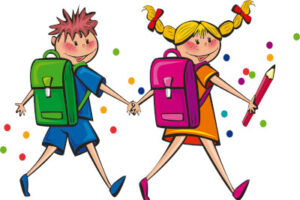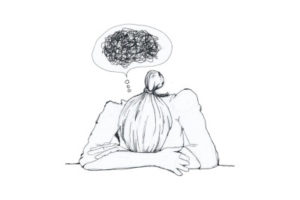A FEW WORDS ABOUT ANGER


“You cannot get angry!”, “You did not have any reasons to get angry”, “You should not get angry because of this.” – these are just some of the parents’ reactions which prove the parents’ sense of incomprehension and helplessness towards difficult childhood experiences. Adults are accompanied by a sense of anger, irritation or frustration every day. Then why do parents try so hard to avoid the appearance of those feelings in a child’s life?
A child can experience all variety of emotions and should have the right to experience them. Experiencing anger consciously is not only a natural state but is also necessary for proper emotional development of each child. Access to own anger or in other words ability to contact own anger functions as a form of protection for us against the situations when our order or values are affected. When we learn in the course of self-development that experiencing anger is inappropriate, we may have a tendency to put ourselves in the role of a victim. The other extreme aspect is inability to regulate anger and as a result a sense of capturing these emotions. Consequently, this leads to a situation in which we become aggressors, we hurt or cause harm to others.
An area of working with a child is not the issue of experiencing difficult emotions but the issue associated with reaction to anger. In other words, this includes everything a child does with own anger. A moment when a small child beats screams or lays down on the floor as a result of anger can be considered a standard behavior. From the adult’s perspective it may be difficult for a parent to understand that a child simply does not have other tools to deal with difficult and great emotions. A child must get to know and acquire these tools but first he/she attempts to reduce and ease tension quickly and consequently experiments. The role of an adult is to show a child what are the socially acceptable ways of dealing with anger. Controlling or regulating emotions in the case of healthy children is just a matter of development. One child may learn these skills faster and better while others need more time. Children have various ideas about how to reduce anger. The smaller the child, the stronger are associations of reduction with the body’s level and it is less shaped by the so-called culture. The adults may expect more intellectual attempts at dealing with difficult experiences of anger from older children.
Recommendations for parents:
During psychological workshops on how to cope with their own anger, the children had the opportunity to share their individual ideas. Together, they have created class instructions which include a variety of clutches, crumples, bags for kicking, descriptions of the ways of counting, distracting, places of relaxation and many other children’s methods to “overcome anger.”
I also encourage you to discuss some issues at home at the level of a child, e.g. how the child understands own anger, what happens when it confronts own anger, what he/she needs, what expectations he/she has, which method of coping with own experiences seem to be the most effective in his/her opinion. Maybe it is a great idea to find at home a peaceful and safe place where a child may stay in order to calm down, relax and to understand what he/she is dealing with. However, it is important that the place is not perceived as a disciplinary pillow or chair. The child should be ensured that the experience of anger is not bad but at the same time it is important to make the child aware of the fact that expressing anger can never violate one’s own or someone else’s boundaries.
Zofia Piersa-Poddębniak
Psychologist, Psychotherapist




